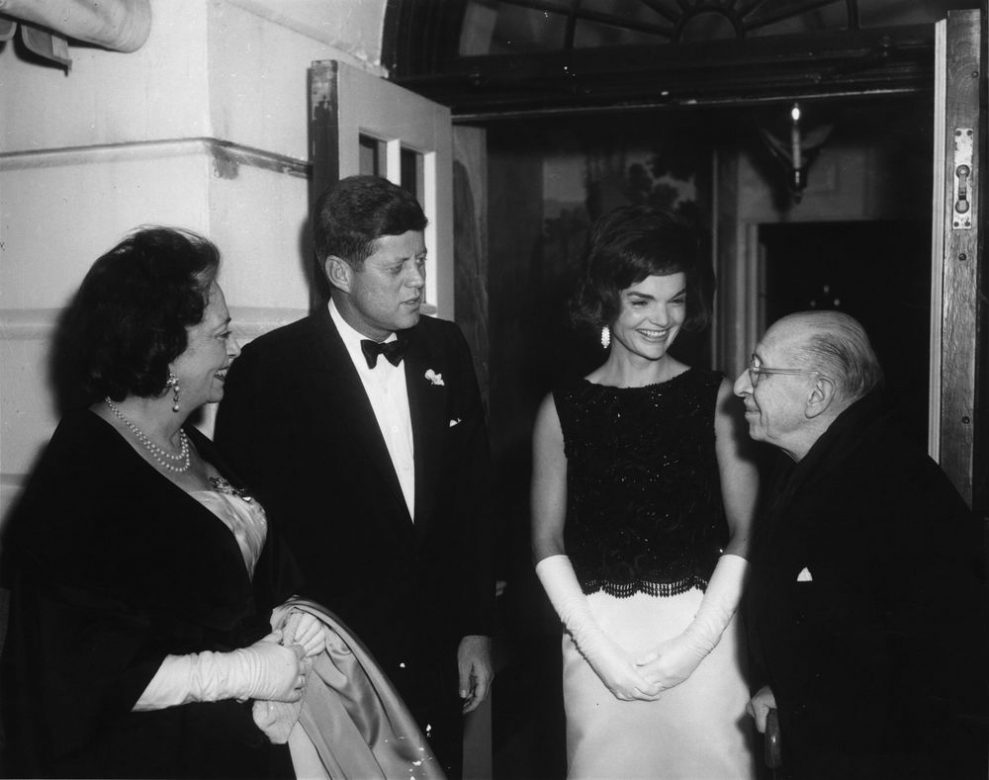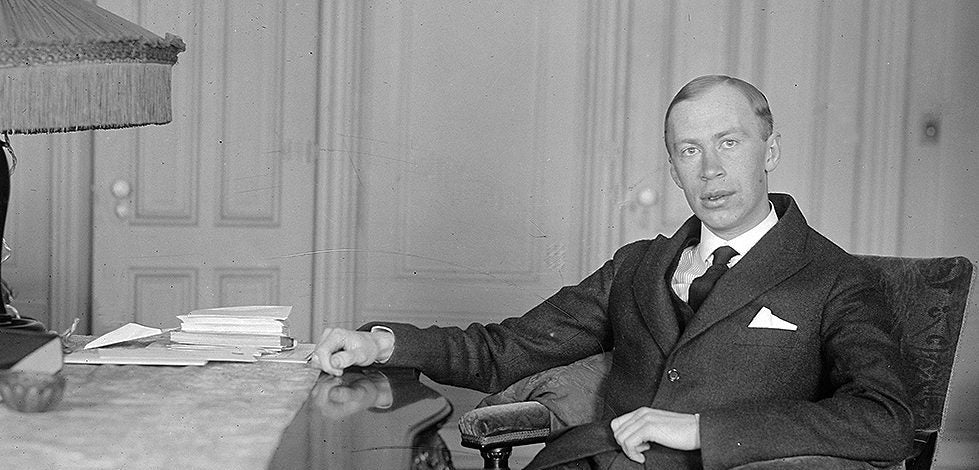HAPPENING TODAY:
Tonight at 7:30 at Severance Music Center, in a repeat of Wednesday’s program, Franz Welser-Möst leads The Cleveland Orchestra in three symphonies: Sergei Prokoviev’s Second & Fifth, and Anton Webern’s only. Come early for a Concert Preview lecture by Eric Charnofsky. (Read our review of Wednesday’s performance on Cleveland.com.)
For details, visit our Concert Listings.
PETER SCHICKELE, 88
“Peter Schickele, an American composer whose career as a writer of serious concert music was often eclipsed by that of his antic alter ego, the thoroughly debauched, terrifyingly prolific and mercifully fictional P.D.Q. Bach, died on Tuesday at his home in Bearsville, a hamlet outside Woodstock, N.Y. He was 88.” Read the New York Times obituary by Margalit Fox here.
TODAY’S ALMANAC:
by Jarrett Hoffman
Perhaps the most interesting anniversary on this date is not of a birth, a death, or a premiere, but of a dinner. The host was John F. Kennedy, the featured guest was the 79-year-old Igor Stravinsky, and the setting in 1962 was The White House.

Pettiness, chumminess, politics, charm, and inebriation were all a part of the evening:
- Pettiness: Stravinsky considered turning down the invitation because Pablo Casals — not a fan of Stravinsky artistically, and vice versa — had been there first, having performed at the White House two months earlier.
- Chumminess: Conductor Robert Craft felt that the event was “more a Kennedy-circle dinner, with political payoffs,” than a Stravinsky dinner — something that did not escape the composer himself either (see below).
- International politics: The backdrop of the event was the Cold War, and at this point, the Russian-born Stravinsky had been an American citizen for over fifteen years. When Kennedy asked his opinion on other Russian composers, Stravinsky replied, “Mr. President, I have left Russia since 1914 . . . I have not studied or heard many of the works of these composers. I have therefore no valid opinion.” The president was pleased.
- Charm: JFK reportedly made the perfect toast to the composer: short and humorous, but also moving. One guest later commented that Stravinsky — “an amiable man, very tiny, with a manner of twinkling gravity” — responded “with immense charm.”
- Inebriation: Stravinsky departed after only a short time at the reception following dinner. The Washington Post wrote that he was tired from rehearsals of his opera Oedipus Rex, and that he left looking “exhausted — but happy.” But in a letter written the next month, Stravinsky described the “atrocious selection of 25 people who had nothing in common with me…what are we to do at such parties other than drink. . .” And when the president’s secretary approached Stravinsky to ask how he felt, his answer was “drunk.” Given the composer’s sharp tongue when sober, leaving early was probably a good call.
Despite his general abrasiveness, Stravinsky seemed to remember the event with gratitude. And after Kennedy was assassinated in late 1963, the composer responded a year later with his twelve-tone Elegy for J.F.K., setting a text by W.H. Auden written at Stravinsky’s request. Click here to listen to a performance from March 2021 featuring mezzo-soprano Sara Sheffield accompanied by two clarinetists and one alto clarinetist from the U.S. Marine Band.




